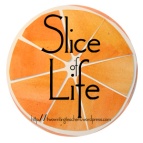Tuesday's nap was not enough to set me back on post-time-change course for Wednesday. Cursor freeze didn't help either. As with blogging, I should keep at it (napping) and just push through, so I has another one today. That still leaves a gap in the continuum where March 11 should be.
To restore balance and harmony in the blogiverse, I will seek out just the right something — graphic, fine art, video, Feghoot, or fabulation — for a back-dated post to fill the void. But that's another post: call it "the slice that never was."
This one is turning into a reflection on time. The gap fill post will be probably be about time too but artifacts/illustrations. Neither will dwell on Ben Franklin's proverbial lost time like pennies spent not saved (except that you can't really save time, it passes no matter what. Time (if not timely) topics include perception, productivity, how spent or experienced, and literary tropes.
Both Proust's À la recherche du temps perdu and the medieval memento mori, each in its own way, are literary tropes about time -- one retrieving it, the other letting go of it. In "A new refutation of time," Borges tries to demonstrate that there is no time. In The Birth of Purgatory, French historian Jacques Le Goff (also author of Time, Work and Culture in the Middle Ages) identifies the emergence of the doctrine of purgatory "some time between 1170 and 1200" with clocks, measuring time and the rise of a mercantile system and transactions (spending time or money, paying debt)
Perception is another, from "Why Does Time Fly as We Age?" (Scientific American, 2013)
Two conclusions appear to ring true: 1.) While age is certainly a factor, the notion of
“time pressure” contributes significantly to our perception of time, across all age groups, and 2.) Time pressure is cross-cultural; the results of these studies were similar among the German, Austrian, Dutch, Japanese, and New Zealander participants.
See also:
- "Fast Time and the Aging Mind" (NYTimes, 2013).
- "Scientists discover how to make time pass faster (or slower)" (Daily Mail, 2012)
- "The Possiblian" (New Yorker Magazine, 2011)
Yes, people spent time researching and writing about this. And now I am too.
 I am participating in the March Slice of Life Challenge: blogging a slice a day for all of March. Thank you, Two Writing Teachers! Visit the site to read some slices
I am participating in the March Slice of Life Challenge: blogging a slice a day for all of March. Thank you, Two Writing Teachers! Visit the site to read some slices
Very interesting. I can tell you are a brilliant thinker- able to share these perspectives on time. I hate when I lose track of it too!
ReplyDeleteI just got started on a"time riff" and kept finding interesting links. That's probably not a real "slice of life" but will just have to. I decided last night (this morning) just to stop worrying about deadlines ~ after all, I'm retired and that should be one of the perks.
DeleteAs for the "lost slice" post (I already set it up), I'm thinking just fun images and media ~ Dali's melting watch, a clip of "As time goes by" from Casablanca....etc
Time is something we always wish we had more of, but so many of us lose track of. Interesting post!
ReplyDeleteand the more interested you get in something the more likely you are to lose track... clock watching is not for the engaged
Delete